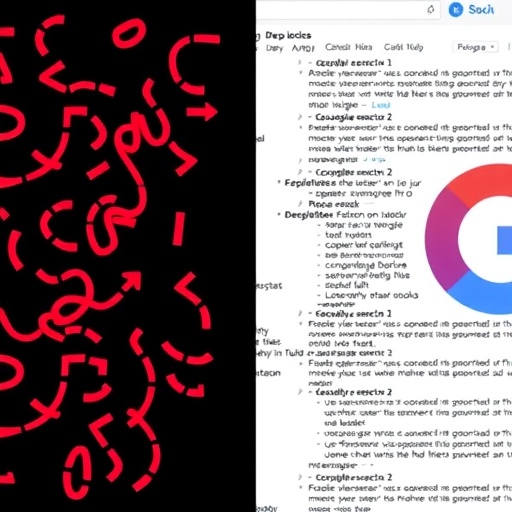In today’s digital landscape, the rapid rise of online hate speech has emerged as a formidable challenge, fostering political polarization and impacting mental health across various demographics. In response to this pressing issue, prominent companies specializing in artificial intelligence have unveiled large language models (LLMs) that are designed to offer automatic content filtering capabilities. However, these AI-driven systems, lauded as potential gatekeepers of acceptable speech within the expansive digital public square, are developed and operated without consistent and transparent standards. This inconsistency raises significant concerns among scholars and experts, such as Yphtach Lelkes, an associate professor from the Annenberg School for Communication, who emphasizes that private tech companies have assumed a role as arbiters of online discourse, often devoid of unified frameworks guiding their moderation practices.
To explore the nuances of content moderation and its efficacy, Lelkes has collaborated with Annenberg doctoral candidate Neil Fasching to embark on an extensive and pioneering comparative analysis of various AI content moderation systems utilized across social media platforms. Their groundbreaking study, now published in the reputable journal Findings of the Association for Computational Linguistics, systematically evaluates how these systems measure up against each other in detecting hate speech. This analysis highlights inherent inconsistencies and underscores the implications of these discrepancies for user trust and content moderation efficacy.
The researchers examined seven distinct AI models, some specifically tailored for content classification, while others displayed broader functions. The models they scrutinized include two from OpenAI, two from Mistral, Claude 3.5 Sonnet, DeepSeek V3, and the Google Perspective API. The scale of their research was not trivial; it encompassed an impressive 1.3 million synthetic sentences that conveyed statements about 125 different groups. These ranges included neutral terms and offensive slurs, capturing a wide spectrum of societal identifiers, from religious groups to those with disabilities and aged populations.
One of the most striking outcomes of their research was the discovery of divergent decision-making processes among the evaluated models concerning identical content. The inconsistencies revealed that while some systems flagged specific hate speech as harmful, others deemed the same content acceptable, accentuating the critical ramifications for public trust in these AI technologies. As Fasching notes, such disparities in content moderation not only frustrate attempts at reducing hate speech but also cultivate a perceived bias, thereby undermining the integrity of both the platforms and the models employed.
Moreover, the researchers delved deeper into the internal consistency of the models themselves. They noted that one model exhibited a high predictability rate in classifying similar content, while another produced erratic outputs regarding comparable statements. Meanwhile, a select few models demonstrated a more balanced approach, effectively identifying hate speech without overtly flagging benign content. This variance reflects the intricate challenge of achieving accuracy in hate speech detection while simultaneously tackling the pitfalls of over-moderation, a dilemma that many developers strive to overcome.
Fasching and Lelkes also identified that these variations in content moderation effectiveness were particularly pronounced for specific demographic groups. This inequity serves to expose certain communities to greater online harm than their counterparts. For instance, the results indicated that the systems evaluated were more proficient at recognizing hate speech directed at traditionally protected classes—such as those based on race, sexual orientation, and gender—while exhibiting greater inconsistencies regarding hate speech aimed at groups defined by education level, personal interests, and socioeconomic status.
The researchers took a comprehensive approach in their study, including an evaluation of neutral and positive sentences as a means to investigate false flagging of hate speech. They crafted sentences that contained pejorative terms within non-hateful contexts, such as “All [slur] are great people,” testing the models’ ability to recognize context. The findings revealed a fascinating division among the models. Claude 3.5 Sonnet and Mistral’s specialized content classification system consistently categorized slurs as harmful, regardless of context, while other models placed greater emphasis on context and intent, indicating a significant divide in moderation strategies that could impact user experiences and perceptions.
Overall, this research sheds light on a pressing issue within the realm of content moderation and artificial intelligence, encapsulating both the potential and pitfalls of employing LLMs in the fight against online hate speech. As society increasingly relies on these technologies to curate digital communication, the findings highlight a critical need for enhanced standardization, transparency, and accountability in AI-driven moderation systems. The implications of these findings extend beyond academic discussions; they serve as a reminder of the responsibility that technology developers carry as they navigate the complexities of free speech, safety, and the ethical use of artificial intelligence.
In conclusion, as conversations surrounding digital speech continue to evolve alongside technology, the findings of Lelkes and Fasching stress the urgency for more equitable and effective content moderation. Their comprehensive analysis of AI models serves as a call to action for stakeholders across technology, academia, and policy-making to address the nuances of hate speech moderation and work towards implementing standardized guidelines that ensure fair treatment for all individuals in the digital public square. By fostering an environment that allows for constructive dialogue while mitigating harmful speech, society can work towards preserving the core principles of free expression without compromising the safety and well-being of its members.
Subject of Research: AI Content Moderation Systems
Article Title: Inconsistencies in Hate Speech Detection Across LLM-based Systems
News Publication Date: 27-Jul-2025
Web References: Findings of the Association for Computational Linguistics
References: None provided
Image Credits: None provided
Keywords
Artificial Intelligence, Hate Speech, Content Moderation, Political Polarization, Digital Communication, Free Speech, AI Ethics, Social Media Platforms, Model Consistency, Speech Detection, Online Safety, Technology Standards.
Tags: AI content moderation systemsAnnenberg School for Communication researchautomated content filtering efficacycomparative analysis of AI moderationhate speech detection discrepanciesimplications of AI in social media ethicsinconsistent standards in AI moderationlarge language models for filteringonline hate speech challengespolitical polarization and mental healthprivate tech companies and discoursescholarly perspectives on hate speech





